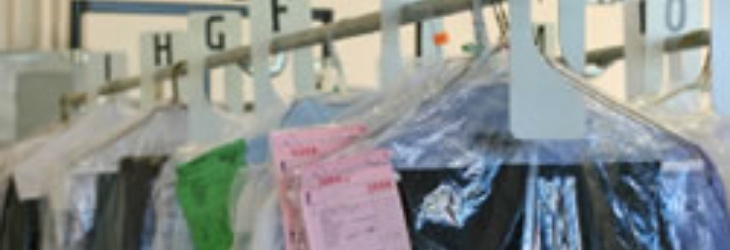Merriam-Webster defines a bailee as the person to whom personal property is bailed. The next question might be, what does ‚”bailed‚” mean? Well, the classic example is your dry cleaner. You drop off your clothes that need cleaning (your personal property) to the dry cleaner (the bailee) and then pick up your clothes when done. Seems fairly straightforward, right? Well what happens if your clothes are somehow damaged while at the dry cleaners? Should you have to make a claim on your policy or should the dry cleaner have insurance coverage in place to reimburse you for your loss? For purposes of this article, we‚’re addressing this somewhat confusing type of claim which is common among many types of businesses ‚not just dry cleaners.
To begin, let‚’s review some frequently used language in the typical business insurance policy:
No Benefit to Bailee
One of the conditions in the commercial property policy is that there is no insurance under the policy for the benefit of others who may have their property entrusted to you. For instance, if you have equipment at a vendor for repair and it is damaged, the vendor cannot seek recovery under your commercial property policy. Your insurance company could settle with you, and using the rights of subrogation, proceed against the guilty party for reimbursement.
Liability of Bailees
What types of businesses, other than your dry cleaner, have bailment exposures? Some good examples would include jewelers and television repair businesses. A bailment is a legal relationship that arises when one person (the bailor) turns over possession of personal property to another person (the bailee) under an agreement where the bailee is under a duty to return identical property to the bailor.
When a bailment involves the transfer of property where no compensation is involved, it is referred to as a ‚”gratuitous bailment.‚” An example would be when a neighboring business asks if they can store property temporarily on your property. If the bailment is for the mutual benefit of both parties, the bailee is referred to as a ‚”bailee for hire‚” or commercial bailment.
In most cases, commercial bailments are for the mutual benefit of the bailee and the bailor. The degree required in a commercial bailment requires the bailee to use only the degree of care that an ordinarily prudent person would use in handling his or her own property. As a result of this standard, the bailee‚’s liability is usually limited to loss or damage that results from the bailee‚’s negligence. If the bailor‚’s property was destroyed in a fire, the bailee would not be liable for damage unless the bailee‚’s negligence caused the fire.
Give our office a call if you have more questions regarding bailee coverages and whether you have this exposure.
